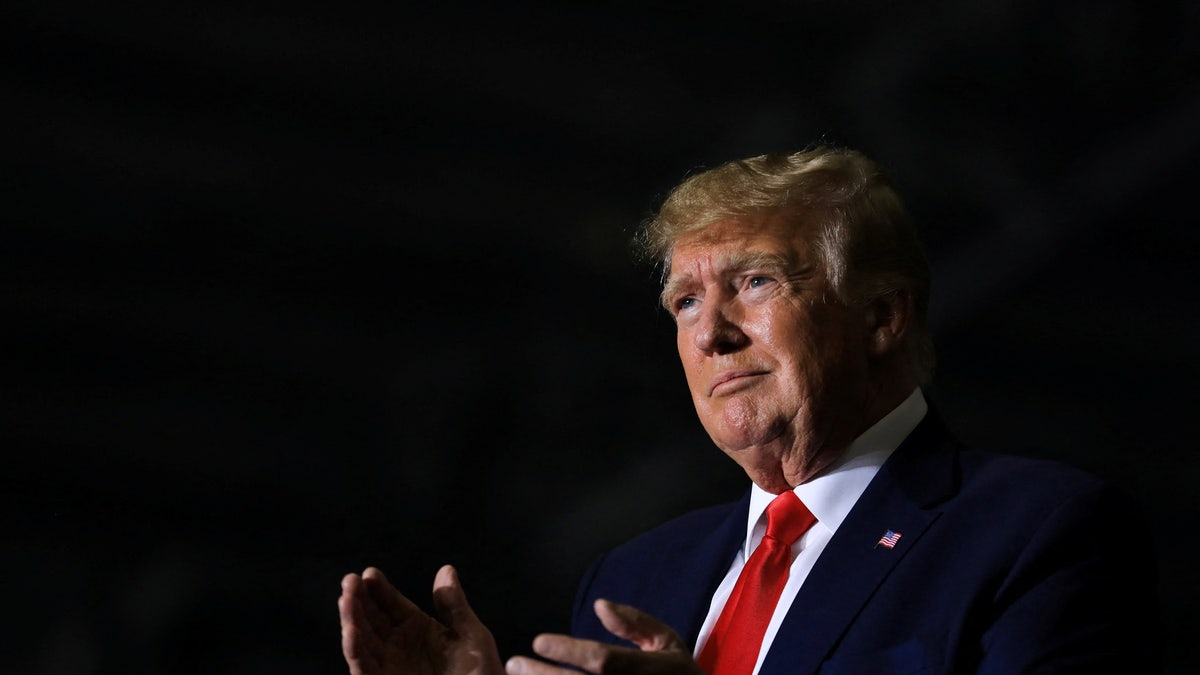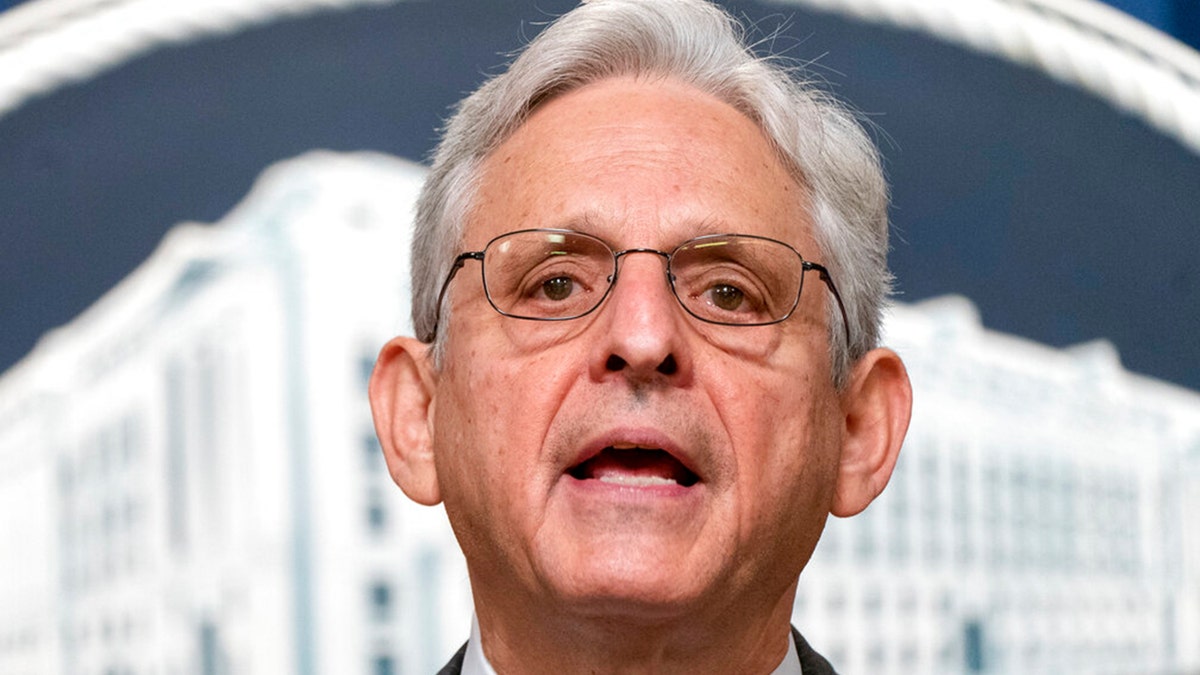Fox News Flash top headlines for August 31
Fox News Flash top headlines are here. Check out what's clicking on Foxnews.com.
I’ve been a naysayer on the notion that the Justice Department is trying to make a criminal case against former President Donald Trump based on the Mar-a-Lago raid, at least with respect to the offenses most often touted: mishandling classified documents and illegally retaining government records.
But that has come with a significant caveat: If the evidence of obstruction of justice proved to be convincing, there’s a very good chance the government would indict.
The court filing made by the Justice Department on Tuesday night, in response to Trump’s lawsuit seeking a special master to review materials seized by the FBI, indicates that prosecutors have amassed formidable evidence of obstruction. That’s a game-changer.
As I explained in The Post last week, "The Justice Department typically takes very seriously any tampering with witnesses or evidence." Moreover, if it turned out that the FBI had damning "proof of attempts to conceal or destroy government records, especially highly classified ones," that would amount to criminal conduct that is virtually always prosecuted.
CNN REPORTER SAYS GOP SET UP ‘LAYUP’ FOR DEMOCRATS WITH ‘DEFUND THE FBI’ PUSH: ‘WALKING INTO A TRAP’

Former U.S. President Donald Trump claps as the crowd cheers him on during a rally in Washington Township, Michigan, U.S. April 2, 2022. (REUTERS/Emily Elconin)
Classified information cases are very difficult to do, even without the added complication of a suspect who happens to have been the only official in government with the power to declassify any intelligence. It is hard to prove the case without risking disclosure of the intelligence. And a prosecution centering on unlawful retention of government records has its own complications. Post-Watergate, when Congress enacted the Presidential Records Act, lawmakers did not include criminal enforcement provisions. The Justice Department now believes that gap has been filled by a different statute (sec. 2071), which criminalizes the removal or concealment of government records. Maybe so, but the question would have to be litigated.
By contrast, obstruction is uncomplicated and easy to prove. There would be no need to get into the content of government documents, classified or not. The case would focus on Trump’s allegedly lying about having government records and concealing them. What’s in the documents is beside the point.
And just as important, given the certainty that the former president and his supporters would claim that he is being selectively prosecuted because the Biden administration fears him as a potential 2024 opponent, an obstruction case is easy to understand. It involves the kind of misconduct — energetically concealing evidence, lying to investigators, lying under oath in a certification to a grand jury, and (DOJ suggests) possibly destroying documents and intimidating witnesses — that we would expect any American (or at least any American not named Clinton) to be prosecuted over.
Even before Tuesday night’s Justice Department court filing, we knew that the National Archives and Records Administration (NARA) had pleaded with Trump for months to return presidential records he had taken to Mar-a-Lago.
Only in January 2022, a year after leaving office, did he grudgingly surrender 15 boxes, because NARA had threatened to involve Congress. The boxes contained prodigious amounts of classified information: 700 pages worth, much of it top-secret. Upon beginning to investigate, the FBI developed evidence (still not described) indicating that Trump continued to hoard classified intelligence. Thus, a grand jury subpoena was issued on May 11, demanding (a) the surrender of any documents marked classified, and (b) a sworn certification that there were no more such documents at Mar-a-Lago.

Attorney General Merrick Garland speaks during a news conference. (AP Photo/Jacquelyn Martin)
There followed a June 3 meeting with government officials at Trump’s Florida estate. Contrary to the former president’s public claims that it was amicable, it was under duress. It took place pursuant to a grand jury subpoena in a criminal investigation.
Contrary to Trump’s claims that he was completely cooperative, the subpoena was occasioned by his obdurate refusal to return the government’s property. The government’s court filing details that Trump’s representatives provided a false statement under oath, claiming that the package of 38 documents they surrendered that day was the entirety of the classified material stored at the estate. But, again contrary to Trump’s claims of cooperation, his representatives rebuffed the FBI’s request to be permitted to inspect boxes of government records contained in a storage room.
The government’s submission elucidates that Trump conceded the documents he was holding were classified — he surrendered them on the explicit demand to turn over classified records in his possession, and he never claimed to have declassified them.
In addition, the government never agreed to the permanent storage of government records at Mar-a-Lago provided Trump beefed up the security. To the contrary, officials were frustrated at being refused permission to inspect boxes of what the law deems to be the government’s property. Trump apparently added a better lock because DOJ officials complained about the lack of security, but DOJ was not saying he could keep the documents if he improved the security.
It was just a question of how to get the documents back. Based on its continuing investigation, particularly interviews of witnesses whom prosecutors do not want to identify, the FBI concluded that Trump persisted in storing top-secret intelligence at Mar-a-Lago. While some was likely to be in the boxes, other documents were apt to be found in his office space, among other places he frequented.

Former U.S. President Donald Trump leaves Trump Tower to meet with New York Attorney General Letitia James for a civil investigation on Aug. 10, 2022, in New York City. (James Devaney/GC Images)
CLICK HERE TO GET THE FOX NEWS APP
That is just what the August 8 search uncovered. As prosecutors point out, in addition to finding classified documents in Trump’s office, the FBI found 76 classified documents in storage room boxes — more than twice as many as Trump’s representatives produced on June 3 when they claimed there was nothing more to be found at the resort.
This is a serious obstruction case that appears as if it would not be difficult to prove. The Justice Department is under immense pressure from the Democratic base to indict Trump, and the jury pool in Washington, DC, where the government would file any indictment, is intensely anti-Trump. It is thus hard to imagine that Attorney General Merrick Garland will decide against filing charges.
The best hope Trump has of avoiding an indictment is that Democrats would rather run against a wounded Trump in 2024 than indict him in 2022.
Andrew C. McCarthy is a former federal prosecutor.









































